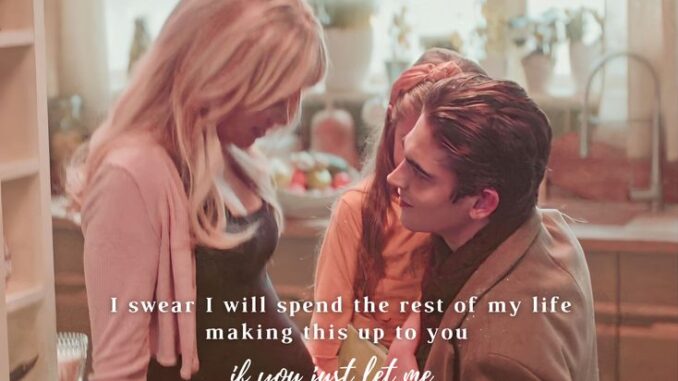
After We Fell, the third installment in the wildly popular After film series, continues to follow the fiery, emotionally charged relationship between Tessa (Josephine Langford) and Hardin (Hero Fiennes Tiffin). Full of passionate arguments, make-up moments, and heart-wrenching drama, the film is everything fans have come to expect from the franchise. But beyond the cinematic allure, there’s a deeper, more troubling question to ask: Are we romanticizing a toxic relationship disguised as passionate love?
From the very beginning of the After saga, Tessa and Hardin’s relationship has been marked by volatility. Hardin is emotionally erratic, controlling, and often aggressive, while Tessa constantly forgives, justifies, or blames herself for his behavior. In After We Fell, these patterns intensify. Hardin’s jealousy becomes more extreme, his temper flares without warning, and he begins to dictate aspects of Tessa’s life—including her career choices and personal boundaries.
The film portrays these behaviors as symptoms of deep love, as though emotional instability and possessiveness are signs of intensity and loyalty. But in reality, they are classic red flags—warnings of unhealthy, potentially damaging dynamics. Red flags in relationships are often subtle at first: overstepping boundaries, mood swings, passive-aggressive behavior, manipulation. But when ignored or, worse, romanticized, they can normalize emotional abuse. Unfortunately, After We Fell takes these behaviors and wraps them in the glitter of passionate storytelling, music montages, and intimate chemistry, making it easy to confuse pain with passion.

Hardin’s actions—like showing up uninvited, emotionally blackmailing Tessa, or lashing out at others when he’s upset—are portrayed as acts of love rather than what they really are: controlling behavior. Tessa, an intelligent, independent young woman, repeatedly sacrifices her emotional wellbeing for the sake of the relationship, convincing herself that love means enduring pain.
This portrayal is especially problematic because the After series targets a young audience—teens and young adults still learning how to define love, self-worth, and healthy emotional connections. When media presents this type of relationship as aspirational, it risks reinforcing harmful beliefs: that real love is supposed to hurt, that jealousy is romantic, that fixing someone else is your responsibility.
Fortunately, not all viewers are buying into the fantasy. A growing number of fans and critics alike are pushing back, calling for more realistic and empowering depictions of love. Social media platforms are filled with conversations about how Tessa deserved better, how Hardin needed therapy more than a girlfriend, and how emotional abuse shouldn’t be glossed over with soft lighting and a soundtrack.
The discussion isn’t about canceling the After series or condemning those who enjoy it. It’s about using these stories as a way to reflect on the messages we absorb—especially when it comes to relationships. Fictional love stories have the power to shape our expectations, and with that comes a responsibility to distinguish between fantasy and reality.
A relationship shouldn’t be a constant emotional battle. It shouldn’t leave one partner feeling small, confused, or fearful. Real love is built on mutual respect, trust, communication, and support—not on control, manipulation, or pain. If After We Fell succeeds in anything, it’s showing how easily a toxic relationship can be disguised as romantic. But maybe it can also spark conversations about what we truly want from love—and what we should never tolerate. It’s time we stop calling emotional chaos “passion.” It’s time we teach ourselves—and the next generation—that the strongest love stories are the ones that don’t require you to lose yourself in the process.
